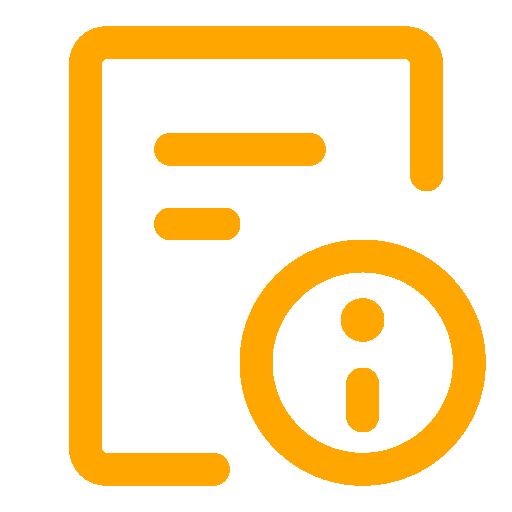Why Remote Prior Consent is the Key to Lowering Management Problem
페이지 정보

본문
Management tasks are required yet commonly frustrating in health care. From insurance verifications to billing and coding, these non-clinical responsibilities can use up considerable time and resources, drawing away interest away from client treatment. One of the most labor-intensive tasks in health care administration is prior consent (). This procedure, in which healthcare service providers need to obtain approval from insurance policy business prior to specific treatments or medicines are given, has actually traditionally been a lengthy, hands-on, and error-prone task.
The shift to remote previous permission has actually been a game-changer in minimizing administrative problems, profiting both health care suppliers and people. In this post, we'll explore why remote previous consent is important for decreasing administrative concern and improving the efficiency of medical care systems.
Recognizing Previous Authorization and Its Impact
Prior to we dive into the specifics of remote previous consent, it's essential to recognize what prior authorization () is and why it has actually traditionally been a troublesome procedure. Prior consent is a requirement from insurer that mandates doctor to obtain authorization prior to delivering certain treatments, procedures, or medications. Insurance providers utilize this procedure to verify that the proposed service is clinically required and covered under the person's strategy.
The conventional procedure is notoriously slow-moving, calling for health care providers to full kinds, send them via fax or mail, and wait on authorization. Frequently, these submissions are insufficient, leading to delays, follow-up requests, and re-submissions. The outcome is a significant administrative worry on medical care personnel, which can delay individual care and boost overhead expenses.
This burden has actually become a growing concern in the healthcare industry. The American Medical Organization (AMA) reports that physicians spend a standard of 14 hours per week on prior permission tasks. This is time that could otherwise be invested with people or focusing on medical tasks, however it is taken in by insurance policy firms' requirements. With the medical care system under increasing pressure to enhance effectiveness and decrease expenses, the requirement for remedies like remote prior permission has actually never ever been greater.
How Remote Prior Permission Minimizes Administrative Burden
Remote prior authorization systems supply several advantages over standard approaches. These electronic tools significantly reduce administrative work, minimized errors, and speed up the general process. Allow's discover exactly how remote previous consent straight addresses the administrative concern in healthcare.
1. Removing Manual Processes
The traditional process depends heavily on hands-on steps, including filling in kinds, making phone telephone calls to insurance companies, and faxing documentation. These processes are not only time-consuming yet additionally prone to human error. Doctor need to make certain that all needed info is consisted of in the submission, which frequently entails examining individual records, confirming insurance coverage information, and cross-referencing therapy methods.
Remote previous permission systems eliminate the need for paper types and hand-operated information access. Service providers can send demands electronically through incorporated platforms, which instantly inhabit client info and therapy information from the Electronic Wellness Record (EHR). This reduction in manual labor saves useful time and prevents mistakes related to hand-written forms or wrong information entry.
2. Faster Turn-around Times
Among the biggest difficulties with typical previous consent is the quantity of time it requires to get approval or denial from insurance firms. The back-and-forth communication in between doctor and insurance policy business can take days and even weeks, postponing client therapy and including to administrative expenses. These hold-ups are particularly troublesome in urgent situations where timely interventions are essential to client results.
With remote systems, the approval procedure is accelerated significantly. Several remote previous permission systems permit providers to submit requests and obtain responses in real-time, improving the approval process and enabling doctor to progress with therapy plans quicker. Some systems even use automated authorization for basic treatments, additionally lowering delay times and management concern.
3. Reducing the Threat of Errors and Denials
Mistakes in the previous permission procedure are usual and can lead to treatment hold-ups, extra benefit carriers, and denials from insurance providers. A lost item of details, a missing signature, or inaccurate coding can lead to a declined case, requiring doctor to resubmit the demand or supply extra documentation. These hold-ups are pricey for both doctor and patients, usually leading to a long term waiting period for the necessary care.
Remote prior permission systems resolve these issues by automating much of the procedure. With integrated recognition checks and data-sharing abilities, these systems make certain that the appropriate details is submitted in the proper format. Service providers can examine that all areas are filled in correctly before submission, reducing the possibilities of missing out on or incorrect data. Additionally, many systems flag possible concerns, permitting doctor to fix issues before sending demands, which lowers the chance of rejections and administrative back-and-forth.
4. Liberating Staff Time for More Crucial Tasks
As discussed earlier, health care carriers and their administrative groups spend a considerable quantity of time managing prior consent requests. The manual handling of these demands can use up a significant section of office team time, decreasing their ability to concentrate on other crucial tasks, portiva.com such as individual care, appointment organizing, or billing.
Remote previous permission systems reduce the management work by automating much of the procedure. By eliminating recurring jobs like faxing and telephone call, personnel can focus their efforts on higher-priority activities, such as patient involvement or resolving much more complicated insurance problems. This enhanced effectiveness increases productivity and allows medical care companies to assign sources a lot more successfully.
5. Enhancing Transparency and Interaction
Clear interaction in between doctor and insurers is important for ensuring that prior authorization demands are dealt with appropriately. With conventional techniques, miscommunication or incomplete details can result in delays and confusion. Service providers often have to adhere to up multiple times with insurance companies, which can be taxing and discouraging.
Remote previous permission systems enhance openness by allowing providers to track the condition of requests in real-time. Both the company and the insurance provider can see where the request is in the process, making it much easier to identify and deal with issues before they cause delays. Companies can additionally communicate with insurance companies better with secure digital systems, improving the whole process.
Finest Practices for Implementing Remote Prior Consent
While the advantages of remote prior consent are clear, health care suppliers have to carry out these systems successfully to reap the full rewards. Right here are some ideal techniques to take into consideration when integrating remote prior consent right into your process:
1. Select a System with Strong Assimilation Capabilities
For remote prior authorization to be most effective, it should seamlessly integrate with your existing Electronic Health Document (EHR) system. Assimilation allows patient data and treatment details to be moved automatically, reducing the demand for manual information entry and reducing errors. It also makes certain that previous consent requests are sent in the proper format and are regular with the individual's clinical record.
2. Train Team and Service Providers
For the system to work efficiently, it is crucial that all appropriate staff and doctor are appropriately educated on just how to use the remote prior permission system. Provide ongoing training sessions to maintain team up-to-date with system updates and new features. This will guarantee that staff can navigate the system successfully and fix any kind of issues that occur.
3. Display and Track Efficiency
Once the system remains in location, it's crucial to track its performance frequently. Monitoring approval times, mistake prices, and rejection factors can provide beneficial understandings into areas for renovation. By recognizing bottlenecks in the procedure or recurring problems, doctor can make modifications to enhance the system and lower management concerns further.
4. Maintain Interaction with Insurers
Despite having remote systems in position, it is necessary to maintain clear and open interaction with insurance firms. Providers must develop standards for sending requests and follow up immediately on any issues or hold-ups. Maintaining solid relationships with insurance provider will certainly aid smooth the approval process and guarantee that prior consent demands are managed effectively.
Final thought
Remote prior consent is a powerful device for minimizing administrative worries in health care. By eliminating hand-operated procedures, quickening approval times, reducing errors, and maximizing team time for more crucial jobs, remote systems help medical care companies operate a lot more effectively and provide much better like their patients.
As the healthcare industry proceeds to embrace digital transformation, remote previous authorization will undoubtedly play an essential role in forming the future of health care management, eventually causing an extra streamlined, economical, and patient-centered system.
The shift to remote previous consent has been a game-changer in lowering management concerns, profiting both medical care companies and patients. Before we dive right into the specifics of remote prior consent, it's essential to understand what prior permission () is and why it has actually generally been a burdensome process. Prior permission is a demand from insurance companies that mandates healthcare providers to obtain approval prior to delivering details treatments, procedures, or drugs. Lots of remote prior permission systems enable carriers to submit requests and receive actions in real-time, enhancing the approval procedure and enabling healthcare companies to move ahead with therapy plans extra rapidly. For the system to function efficiently, it is vital that all appropriate team and medical care companies are correctly trained on how to utilize the remote previous consent system.
The shift to remote previous permission has actually been a game-changer in minimizing administrative problems, profiting both health care suppliers and people. In this post, we'll explore why remote previous consent is important for decreasing administrative concern and improving the efficiency of medical care systems.
Recognizing Previous Authorization and Its Impact
Prior to we dive into the specifics of remote previous consent, it's essential to recognize what prior authorization () is and why it has actually traditionally been a troublesome procedure. Prior consent is a requirement from insurer that mandates doctor to obtain authorization prior to delivering certain treatments, procedures, or medications. Insurance providers utilize this procedure to verify that the proposed service is clinically required and covered under the person's strategy.
The conventional procedure is notoriously slow-moving, calling for health care providers to full kinds, send them via fax or mail, and wait on authorization. Frequently, these submissions are insufficient, leading to delays, follow-up requests, and re-submissions. The outcome is a significant administrative worry on medical care personnel, which can delay individual care and boost overhead expenses.
This burden has actually become a growing concern in the healthcare industry. The American Medical Organization (AMA) reports that physicians spend a standard of 14 hours per week on prior permission tasks. This is time that could otherwise be invested with people or focusing on medical tasks, however it is taken in by insurance policy firms' requirements. With the medical care system under increasing pressure to enhance effectiveness and decrease expenses, the requirement for remedies like remote prior permission has actually never ever been greater.
How Remote Prior Permission Minimizes Administrative Burden
Remote prior authorization systems supply several advantages over standard approaches. These electronic tools significantly reduce administrative work, minimized errors, and speed up the general process. Allow's discover exactly how remote previous consent straight addresses the administrative concern in healthcare.
1. Removing Manual Processes
The traditional process depends heavily on hands-on steps, including filling in kinds, making phone telephone calls to insurance companies, and faxing documentation. These processes are not only time-consuming yet additionally prone to human error. Doctor need to make certain that all needed info is consisted of in the submission, which frequently entails examining individual records, confirming insurance coverage information, and cross-referencing therapy methods.
Remote previous permission systems eliminate the need for paper types and hand-operated information access. Service providers can send demands electronically through incorporated platforms, which instantly inhabit client info and therapy information from the Electronic Wellness Record (EHR). This reduction in manual labor saves useful time and prevents mistakes related to hand-written forms or wrong information entry.
2. Faster Turn-around Times
Among the biggest difficulties with typical previous consent is the quantity of time it requires to get approval or denial from insurance firms. The back-and-forth communication in between doctor and insurance policy business can take days and even weeks, postponing client therapy and including to administrative expenses. These hold-ups are particularly troublesome in urgent situations where timely interventions are essential to client results.
With remote systems, the approval procedure is accelerated significantly. Several remote previous permission systems permit providers to submit requests and obtain responses in real-time, improving the approval process and enabling doctor to progress with therapy plans quicker. Some systems even use automated authorization for basic treatments, additionally lowering delay times and management concern.
3. Reducing the Threat of Errors and Denials
Mistakes in the previous permission procedure are usual and can lead to treatment hold-ups, extra benefit carriers, and denials from insurance providers. A lost item of details, a missing signature, or inaccurate coding can lead to a declined case, requiring doctor to resubmit the demand or supply extra documentation. These hold-ups are pricey for both doctor and patients, usually leading to a long term waiting period for the necessary care.
Remote prior permission systems resolve these issues by automating much of the procedure. With integrated recognition checks and data-sharing abilities, these systems make certain that the appropriate details is submitted in the proper format. Service providers can examine that all areas are filled in correctly before submission, reducing the possibilities of missing out on or incorrect data. Additionally, many systems flag possible concerns, permitting doctor to fix issues before sending demands, which lowers the chance of rejections and administrative back-and-forth.
4. Liberating Staff Time for More Crucial Tasks
As discussed earlier, health care carriers and their administrative groups spend a considerable quantity of time managing prior consent requests. The manual handling of these demands can use up a significant section of office team time, decreasing their ability to concentrate on other crucial tasks, portiva.com such as individual care, appointment organizing, or billing.
Remote previous permission systems reduce the management work by automating much of the procedure. By eliminating recurring jobs like faxing and telephone call, personnel can focus their efforts on higher-priority activities, such as patient involvement or resolving much more complicated insurance problems. This enhanced effectiveness increases productivity and allows medical care companies to assign sources a lot more successfully.
5. Enhancing Transparency and Interaction
Clear interaction in between doctor and insurers is important for ensuring that prior authorization demands are dealt with appropriately. With conventional techniques, miscommunication or incomplete details can result in delays and confusion. Service providers often have to adhere to up multiple times with insurance companies, which can be taxing and discouraging.
Remote previous permission systems enhance openness by allowing providers to track the condition of requests in real-time. Both the company and the insurance provider can see where the request is in the process, making it much easier to identify and deal with issues before they cause delays. Companies can additionally communicate with insurance companies better with secure digital systems, improving the whole process.
Finest Practices for Implementing Remote Prior Consent
While the advantages of remote prior consent are clear, health care suppliers have to carry out these systems successfully to reap the full rewards. Right here are some ideal techniques to take into consideration when integrating remote prior consent right into your process:
1. Select a System with Strong Assimilation Capabilities
For remote prior authorization to be most effective, it should seamlessly integrate with your existing Electronic Health Document (EHR) system. Assimilation allows patient data and treatment details to be moved automatically, reducing the demand for manual information entry and reducing errors. It also makes certain that previous consent requests are sent in the proper format and are regular with the individual's clinical record.
2. Train Team and Service Providers
For the system to work efficiently, it is crucial that all appropriate staff and doctor are appropriately educated on just how to use the remote prior permission system. Provide ongoing training sessions to maintain team up-to-date with system updates and new features. This will guarantee that staff can navigate the system successfully and fix any kind of issues that occur.
3. Display and Track Efficiency
Once the system remains in location, it's crucial to track its performance frequently. Monitoring approval times, mistake prices, and rejection factors can provide beneficial understandings into areas for renovation. By recognizing bottlenecks in the procedure or recurring problems, doctor can make modifications to enhance the system and lower management concerns further.
4. Maintain Interaction with Insurers
Despite having remote systems in position, it is necessary to maintain clear and open interaction with insurance firms. Providers must develop standards for sending requests and follow up immediately on any issues or hold-ups. Maintaining solid relationships with insurance provider will certainly aid smooth the approval process and guarantee that prior consent demands are managed effectively.
Final thought
Remote prior consent is a powerful device for minimizing administrative worries in health care. By eliminating hand-operated procedures, quickening approval times, reducing errors, and maximizing team time for more crucial jobs, remote systems help medical care companies operate a lot more effectively and provide much better like their patients.
As the healthcare industry proceeds to embrace digital transformation, remote previous authorization will undoubtedly play an essential role in forming the future of health care management, eventually causing an extra streamlined, economical, and patient-centered system.
The shift to remote previous consent has been a game-changer in lowering management concerns, profiting both medical care companies and patients. Before we dive right into the specifics of remote prior consent, it's essential to understand what prior permission () is and why it has actually generally been a burdensome process. Prior permission is a demand from insurance companies that mandates healthcare providers to obtain approval prior to delivering details treatments, procedures, or drugs. Lots of remote prior permission systems enable carriers to submit requests and receive actions in real-time, enhancing the approval procedure and enabling healthcare companies to move ahead with therapy plans extra rapidly. For the system to function efficiently, it is vital that all appropriate team and medical care companies are correctly trained on how to utilize the remote previous consent system.
- 이전글Webdesign Agentur Wien 25.07.07
- 다음글Find Your Ultimate Personal Business 25.07.06
댓글목록
등록된 댓글이 없습니다.








